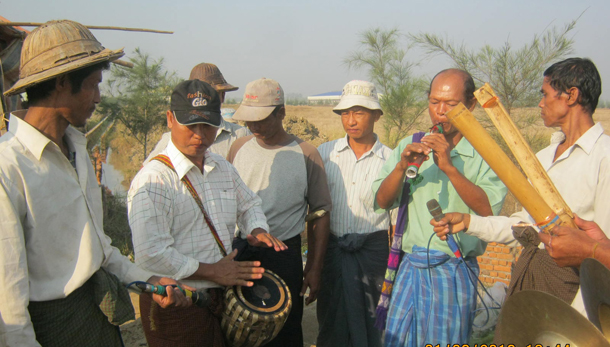RANGOON — Some 70 representatives of farmers’ organizations and civil society organizations from different parts of Burma gathered during a three-day meeting in Rangoon this week to hold the first of a number of discussions on the government’s new draft national land use policy.
They warned that the draft policy was distinctly “pro-business” and if left unchanged could affect the land rights of the country’s impoverished farmers. Activists also complained that the public had limited options to suggest changes to the policy.
On Oct.18, the government released the draft national land use policy, an important step in its effort to draw up legislation to regulate land tenure in Burma. The government’s policy decisions will affect farmlands, urban land use and forests for years to come, and are key to regulating a surge in land investment.
In recent years, Burma has seen a sharp rise in the number of cases of farmers complaining of land grabs by well-connected companies, while many old cases of land grabs by the Burma Army remains unsolved.
Kyaw Thu, director of Paung Ku, a consortium of NGOs, said the meeting, held Monday through Wednesday, is part of a civil society initiative aimed at analyzing the draft policy and consulting the public on suggestions for amendments.
Kyaw Thu said six meetings had been planned in order to gather opinions from farmers, NGOs and the wider public, adding that these meetings were important because the government’s efforts to consult the public about the policy were inadequate and rushed.
“We are afraid that the government will try to approve the policy without considering the opinions of the public, especially the farmers,” he said, adding that the civil society meetings would complement the government’s public consultation process.
The government has announced that the new draft is open for public comments and that it will hold public consultations in all 14 states and divisions, with two more events planned in Shan State and one in Naypyidaw, according to a report released on Wednesday by the Transnational Institute (TNI). The consultation phase is scheduled to end in the third week of December.
Kyaw Thu said concerns were growing as the government has released few details about its consultation process, while the amount of time scheduled for the consultation phase was too short for farmers and NGOs to properly study the policy and suggest amendments.
“The 17 [consultation] meetings will not be successful as they are being held in a very short span of time, and probably the government will only select the people they want to invite,” he said, adding, “Only a few people know the details of these meetings, like the dates, times and places.”
“We will not have enough time to explain this policy to the people and farmers, and to receive their opinions,” said Aung Kyaw Kyaw, a lawyer supporting the Magwe Division Farmers Union, who attended the civil society meeting this week.
“There are some parts to review, amend, add, and to eliminate. We are hoping to compile them all in short time,” he said. “Although the draft policy was written without consultation with the farmers or the citizens or the people who are working on this issue, we believe the government will listen to us for the sake of the poor farmers.”
Aung Kyaw Kyaw said the current draft laid an emphasis on protecting the interests of investors and on facilitating rapid mechanization of Burma’s underdeveloped agriculture sector.
“The policy is focusing too much on investment and industrialization. The policy fails to ensure land ownership for grassroots level farmers,” he said. “If this law would be enacted without review, only the government, businessmen and companies will become land owners and the farmers, who once owned the lands, will become landless labors.”
Myint Thwin, a lawyer who supports farmers involved in land disputes, said the draft policy was not all bad. “There are also some good points on deforestation and landownership. However, we still need to push the government to pass this policy only after consulting the voices from the bottom,” he said.
TNI said in its report that the draft needed significant changes based on the suggestions by farmers and the wider public in order for it to bring socio-economic benefits to all of Burmese society.
The Netherlands-based institute warned that the current draft policy would “create a legal environment that is greatly beneficial for a small group of large national and international companies, but which has the potential to be hugely disadvantageous for millions of small-scale farmers.”

















